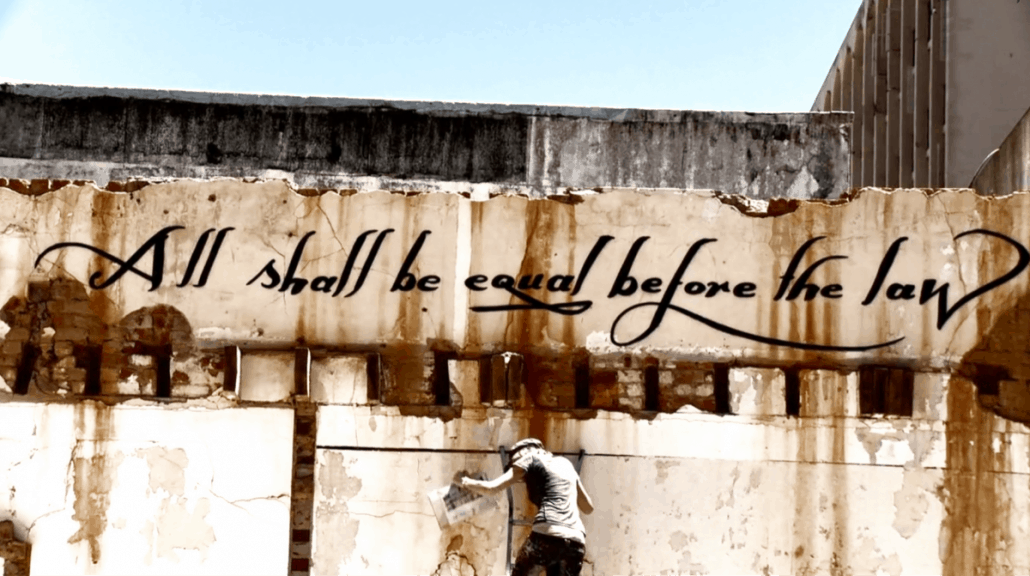Street art by Faith47
Jacob Zuma, a man who has been dodging corruption charges since the mid-2000s, will finally go on trial for those charges on 17 May. The Pietermaritzburg High Court ruled on 23 February that the corruption case against Zuma and his co-accused, French arms company Thales, will start in just under three months.
Neither Zuma nor the Thales representative Christine Guerrier were present in court when the date was set down. Known at that time as Thomson-CSF, Thales was a supplier in South Africa’s controversial multi-billion-rand arms deal in 1999, and the charges are linked to that deal, applying to both Zuma and Thales.
Those against Zuma include one of racketeering, one of money laundering, two of corruption and 12 of fraud, and are connected to 783 dubious transactions the former president allegedly received in connection with the arms deal.
Handing down the ruling, Pietermaritzburg High Court Judge Nkosinathi Chili said: “The court orders as follows – one, the matter is certified as trial ready in accordance to the judge president’s pre-trial criminal court appearance directive dated 7th November 2018.
“Two, the matter is postponed in absentia in respect of Mr Zuma and the Thales representative to 17 May 2021 to 20 June 2021 until the end of term date for trial and will again resume on the first day of the third term in KwaZulu-Natal and any further dates that the honourable judge presiding and the honourable judge president may determine subject to further clarity and resumption of international travel.”
The Jacob Zuma Foundation had recently raised concerns over delays, going as far as to accuse the state of not ever being ready for the trial. The foundation, in a statement, said it hoped that the judiciary would not tolerate any further postponements in the criminal trial of Zuma and Thales.
“Indeed justice delayed is justice denied and this has been [former president] Zuma’s lived reality and experience of the criminal justice system,” claimed the foundation.
But the National Prosecuting Authority (NPA) countered the claims by saying Zuma’s court appearance on 23 February was never intended to be the start of his corruption trial, and the date of 17 May was therefore not another postponement.
The NPA stated that it was “exceedingly disingenuous” to pretend that the trial was set down for 23 February.
The prosecuting authority further noted that in December the Pietermaritzburg High Court said: “The matter is provisionally set to February 23, for the resolution of … outstanding pre-trial management issues with a view to the court at the provisional hearing on February 23, 2021 certifying the matter as trial ready in accordance with the judge president’s pre-trial hearing directives dates November 7,8 [2020].”
Final obstacle removed
In January 2021, the Pietermaritzburg High Court dismissed, with costs, the bid by Thales to challenge the charges against it. Thales decided to not appeal this ruling, paving the way for the trial to finally start.
The January dismissal was the latest in a string of legal defeats by the two parties as they tried to have their respective slates wiped clean.
In May 2019 Thales and Zuma applied unsuccessfully for a permanent stay of prosecution. A full bench of the Pietermaritzburg High Court dismissed the application in October that year, ruling that Zuma and Thales would have to stand trial for the corruption-linked charges,
Thales then approached the Constitutional Court, which turned down the application for leave to appeal.
In October 2020 Thales – represented by Advocate Barry Roux SC – argued in the Pietermaritzburg High Court that the National Prosecuting Authority did not have the evidence to charge the company with racketeering. It further attempted to convince the court that its relationship with convicted fraudster Schabir Shaik, the middleman in the Zuma-Thales relationship, was legitimate.
It was on this challenge that the January ruling was handed down.
Since 2005, Zuma has been dodging these charges which, after numerous rounds of withdrawal and reinstatement, were finally reinstated against both parties in 2018.

